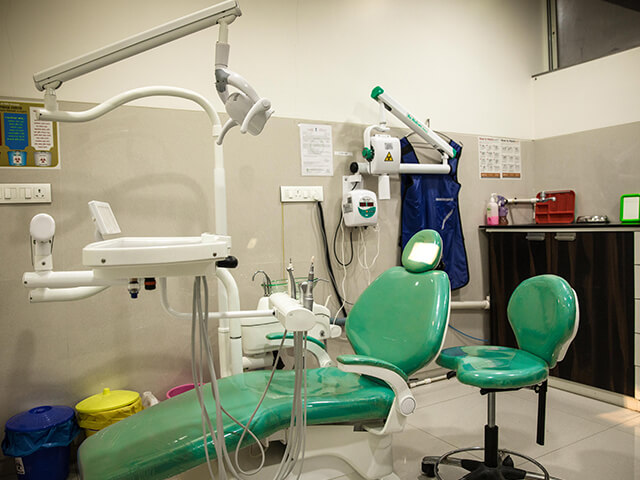Oral & Maxillofacial Unit in Chiplun
- Home
- Oral & Maxillofacial Unit in Chiplun



Oral & Maxillofacial Unit – Onco-Lifecare Cancer Centre, Chiplun
Restoring Smiles, Speech & Strength after Cancer Treatment
Head and Neck cancers, especially those involving the oral cavity, jaw, face, and throat, are among the most frequently diagnosed cancers in India. These cancers often require complex surgeries that may leave patients with visible changes in appearance and difficulties in eating, speaking, or swallowing. At Onco-Lifecare Cancer Centre, Chiplun, we understand the physical and emotional toll these conditions can take—and that’s why we’ve established a specialized Oral & Maxillofacial Unit focused on comprehensive recovery and rehabilitation.
This unit is an integral part of our multidisciplinary cancer care approach and is especially beneficial for patients undergoing oral cancer surgeries or preparing for radiation therapy.
What We Offer
- Post-Surgical Rehabilitation
Our specialists provide advanced care to restore oral and facial function after cancer-related surgeries. This includes improving jaw alignment, facial contours, and assisting patients in regaining confidence in their daily life. - Pre-Radiation Dental Clearance
Before starting radiation therapy for head and neck cancers, patients undergo a full dental evaluation to identify and treat existing oral issues. This helps prevent complications like osteoradionecrosis and infections during treatment. - General & Preventive Dental Care
The unit also provides routine dental care such as scaling, fillings, and extractions to maintain oral health throughout the cancer journey—before, during, and after treatment. - Prosthetic & Functional Restoration
Custom-made dentures, obturators, and oral prostheses are designed for patients who’ve undergone major jaw or palate surgeries, helping them speak, eat, and smile more comfortably.
Community-Focused Initiatives
- Oral Cancer Screening Drives We conduct periodic screening camps across the Chiplun and Ratnagiri region to detect early signs of oral cancer—especially targeting tobacco users and high-risk populations.
- Tobacco Cessation Assistance Our unit offers structured support and counselling for patients trying to quit tobacco.
Patients receive guidance on safe quitting methods and regular follow-ups to stay tobacco-free.
- Awareness & Education Campaigns Through outreach in local communities, schools, and public health programs, our team spreads awareness about early symptoms of oral cancer and the importance of regular check-ups.
How Our Unit Helps You
- Enables functional and cosmetic recovery after oral surgeries
- Reduces oral complications during radiation therapy
- Supports better nutrition through improved chewing and swallowing
- Provides emotional support and restores quality of life
- Promotes early diagnosis through screenings and awareness
Timings & Availability
Monday to Saturday 9:30 AM to 6:00 PM
At Onco-Lifecare Cancer Centre, Chiplun, our Oral & Maxillofacial team is dedicated to helping every patient regain normalcy, dignity, and confidence in their recovery journey. Whether it’s managing pain, restoring a smile, or helping you eat with ease again—we are here for you every step of the way.
